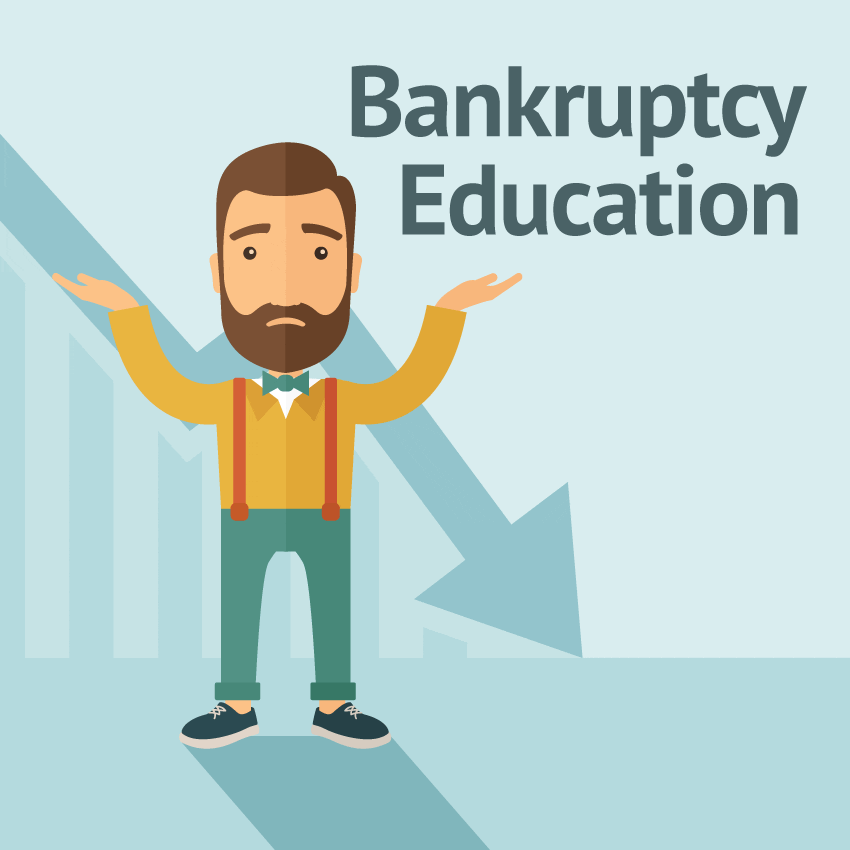Online Bankruptcy Classes & Counseling
What Is Bankruptcy Debtor Education?
In order to be discharged from Chapter 7 or Chapter 13 bankruptcy, you must complete a Pre-Discharge Debtor Education course. The purpose of this bankruptcy course is to help you remain financially secure and use credit wisely so you don’t end up in bankruptcy again.
The course teaches:
- Preparing a budget
- Money management
- Consumer protection laws and agencies
- Dealing with an unexpected financial crisis
- Setting and reaching financial goals
- Saving money
- Cutting expenses
Bankruptcy Abuse Prevention and Consumer Protection Act of 2005
This act was signed into law on April 20, 2005, and includes checks and balances to ensure that consumers are equipped to make informed decisions when it comes to filing bankruptcy. It includes the requirement that all Chapter 7 or 13 bankruptcy petitioners complete approved credit counseling and provide to the court a certificate of completion from a U.S. Trustee-approved, nonprofit credit counseling agency. The law also requires all consumers who file for bankruptcy to successfully complete two bankruptcy courses prior to having debts discharged.
Pre-File Credit Counseling
With Pre-file Credit Counseling, you’ll start online, then receive a personal counseling session by telephone to discuss the details of your current financial situation with a Certified Financial Counselor. Your counselor will help you build an accurate picture of your current finances, then give specific advice on actions you can take to improve it. You’ll also discuss short- and long-term financial goals and determine if there are any alternatives to bankruptcy. The counselor will explain consequences of bankruptcy and actions you can take to get back on sound footing after a bankruptcy.
You can complete the online portion of the course from the convenience of your home computer 24 hours a day, seven days a week. Counseling services are available in English and Spanish.
Bankruptcy Pre-Discharge Course
Here, you’ll build on what you learned during the pre-filing course. You’ll get help with money management, budgeting, and how to develop and stick to a plan that leads you to a brighter financial future. You’ll be equipped with a full set of financial concepts, tools and skills to help you manage your money after your fresh start. The Pre-Discharge Debtor Education course can be completed online. There is no required phone call with a counselor. This course can be taken from the convenience of your home computer 24 hours a day, seven days a week.
Prompt Certificate Delivery and How to File
After finishing the counseling session, InCharge will promptly issue – via email, fax or mail – the required certificates.
When you complete the debtor education course, you must file a form called Debtor’s Certification of Completion of Postpetition Instructional Course Concerning Personal Financial Management (Official Form 23) with the court. In most cases, you will also need to attach the course completion certificate you receive from the provider to Form 23. That form is available on the website of the United States Courts.
Bankruptcy Education Deadlines
Those who file for Chapter 7 bankruptcy protection have 60 days after the first date set for the meeting of creditors to complete the debtor education course and file the certification of completion with the court. Also called a 341 hearing, the meeting is between the debtor and the trustee appointed to oversee the case. The trustee will ask questions about the bankruptcy paperwork, and creditors can also attend and ask about financial matters.
Those who file for Chapter 13 bankruptcy must complete the class and file the certification of completion before your last repayment plan payment or before you file a motion for discharge.
If you miss these deadlines, the court will dismiss your case. To reopen it, you must repay the bankruptcy filing fee. Some courts may require a motion asking the court to accept the certificate and to grant a discharge.
Debtor Education Requirement Exceptions
Exceptions are rarely granted to the debtor education requirements. Exceptions include:
- being on active duty in a military combat zone
- a disability that prevents you from taking the course
- no court-approved course providers are available in your area
- a course isn’t available in a language you understand
What Happens If I Don’t Complete Debtor Education?
If you don’t complete the debtor education course before the deadline passes, the court will typically close your bankruptcy case but not discharge you. So, to wipe out your debts, you must file a motion, pay the required fees and ask the court to reopen your case so that you can file the certificate and obtain a discharge.
If you have any questions about debtor education requirements, contact a certified credit counselor at InCharge Debt Solutions, who can walk you through the entire process.

